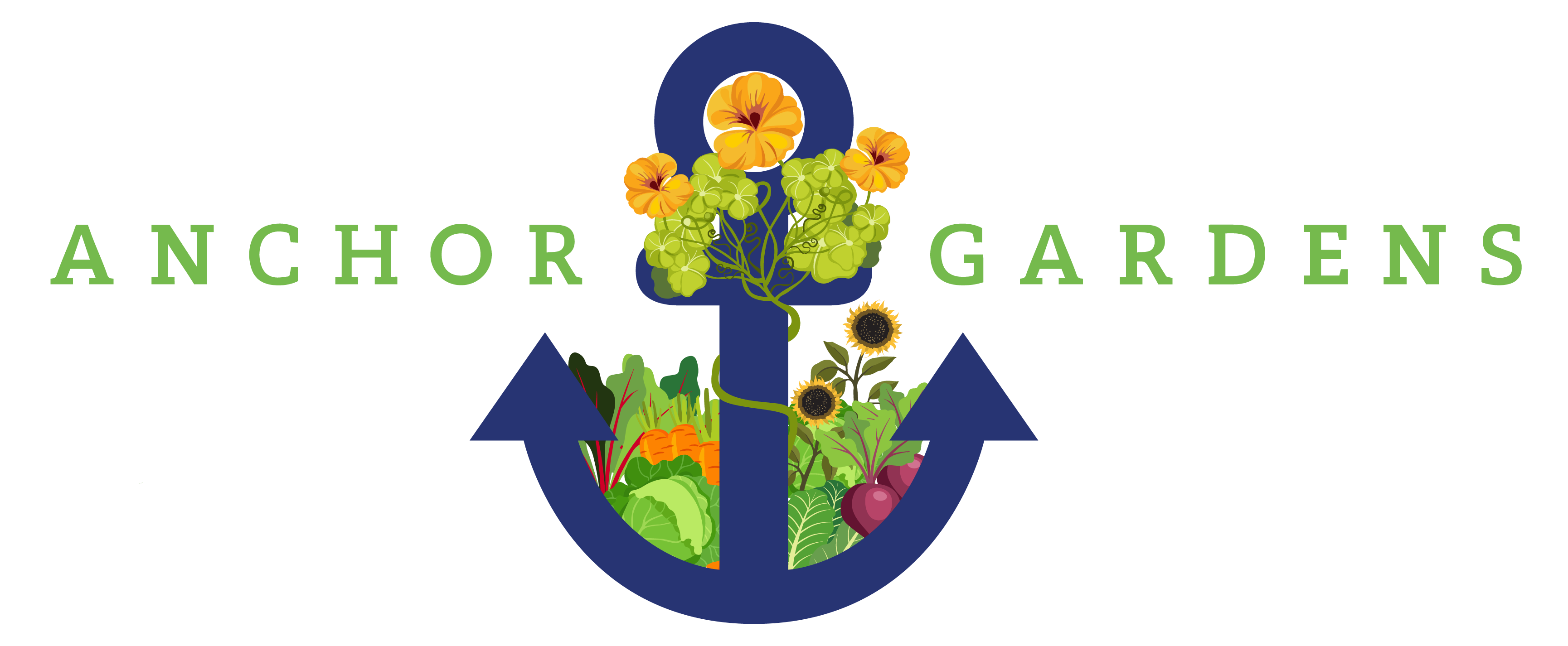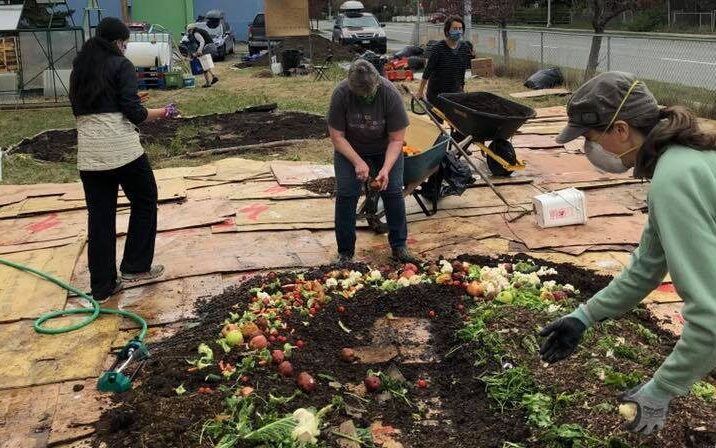Anchor Gardens was launched in March 2020 as an antidote to fear, isolation and food insecurity brought on by the COVID-19 pandemic.
The run on grocery staples in March and April of 2020 was a blunt reminder (and for some, a realization) that less than a week’s supply of food is readily available on grocery store shelves, even in the best of times. Alaska is at the end of a long supply chain, which depends on critical logistics and infrastructure that are not shock-proof.
A group of friends — mostly students and faculty from the Alaska Cold Climate Permaculture Institute — got talking and brainstorming about our city’s dependence on imported food and products. As hunkered down home gardeners, we started planting seeds, physically in greenhouses and under grow lights; and also within our networks and communities. Expert gardeners stepped forward and volunteered to mentor their neighbors and others interested in learning to grow food.
We set a goal for ourselves to establish five (5) new home gardens in every community council area in Anchorage (for a total of 180). From our network, we reached out to each community council area to have a coach step forward and volunteer to teach/coach/organize new gardeners in their area.
Volunteers stepped up to create Facebook groups for each community council area. Volunteers started gathering materials to build gardens—things to keep out of the waste stream like bagged leaves, horse manure, cardboard, pallets. Volunteers were going to the valley to support our last dairy at Havermeister’s to get compost and bring it in to Anchorage folks who didn’t have the means to go get it. Volunteers started asking for donations to help get more garden supplies.
People outside of our network started jumping on board too. We connected with Yarducopia, who offered any extra supplies they had to support new gardeners. We connected with Seeds of Change, who offered to grow seedlings for those who needed them. We connected with pot growers who also volunteered to grow seedlings. The Cooperative Gardens Commission sent us seeds to plant with and we began distributing them through smaller geographic areas based on the community council boundaries.
“If you know something, teach someone” became our mantra and we are all learning and teaching each other at once. Soon people were offering land to garden on for a demonstration garden. We connected to other food security organizations in town and new connections now happen almost daily.

